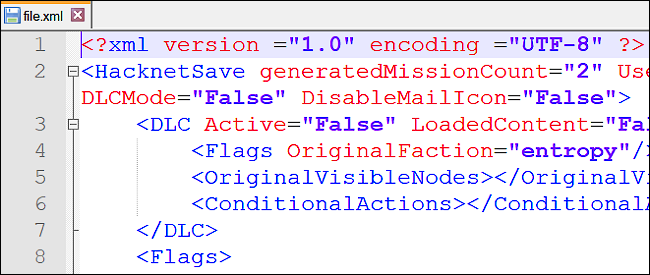Human Resources (HR) is an essential component that plays a key part in the success of organisations in today’s fast-paced and constantly changing professional world.
Skilled human resource specialists who can handle the intricacies of talent management, employee engagement, and workplace dynamics are in high demand as companies realise the importance of their human capital.
If you’re interested in human resources and want to learn more or hone your current abilities, you’ve come to the perfect spot. To help you become a skilled HR practitioner faster, this post provides insights into proven tactics, tools, and practical techniques for learning HR. It’s a complete guide to the best ways to learn HR.
We provide a wide range of learning modalities, from formal schooling and certifications to hands-on experiences and continual self-improvement, so that everyone from seasoned professionals looking to stay informed of the newest trends to newcomers hoping to create a firm foundation can find something that works for them.
Start your journey towards a fulfilling profession in human resources by embarking on this life-altering educational journey.
What Is The Best Way To Learn HR?
Formal education, work experience, and ongoing self-improvement are the three pillars upon which a solid understanding of human resources (HR) can be built. One of the most effective approaches to learning human resources is:
- Formal Education
- Degree Programs: Consider pursuing a degree in Human Resource Management, Business Administration, or a related field. Many universities offer undergraduate and graduate programs specifically focused on HR.
- Online Courses: Platforms like Coursera, edX, and LinkedIn Learning offer a variety of HR courses, covering topics such as talent management, employee relations, and HR analytics.
- Professional Certifications
- PHR/SPHR Certification: The Professional in Human Resources (PHR) and Senior Professional in Human Resources (SPHR) certifications from the HR Certification Institute (HRCI) are widely recognized and demonstrate a high level of HR knowledge.
- SHRM-CP/SCP Certification: The Society for Human Resource Management (SHRM) offers the Certified Professional (SHRM-CP) and Senior Certified Professional (SHRM-SCP) certifications, which are also highly regarded in the HR field.
- Networking and Mentorship: Join HR associations, attend industry conferences, and participate in networking events. Building connections with experienced HR professionals can provide valuable insights and mentorship opportunities.
- Internships and Entry-Level Positions: Gain practical experience through internships or entry-level HR positions. Hands-on experience allows you to apply theoretical knowledge and develop practical skills.
- Read HR Publications: Stay informed about industry trends, best practices, and case studies by reading HR publications, journals, and blogs. This can help you stay updated on the latest developments in HR.
- Continuous Learning: HR is a field that constantly evolves. Commit to continuous learning by staying curious, attending workshops, and participating in webinars. Subscribe to newsletters and follow thought leaders in the HR space.
- Soft Skills Development: Develop essential soft skills such as communication, empathy, and problem-solving. These skills are crucial in HR roles, where effective interpersonal relationships are key.
- Utilize HR Software: Familiarize yourself with HR software and tools used in the industry, such as HRIS (Human Resources Information System) and ATS (Applicant Tracking System). Practical experience with these tools is valuable in a professional setting.
- Case Studies and Practical Projects: Work on real-world case studies and practical projects to apply theoretical knowledge. This hands-on approach can enhance your problem-solving skills and provide concrete examples for your portfolio.
- Stay Informed about Legal Compliance: Understand the legal aspects of HR, including employment laws and regulations. Staying compliant is critical in HR roles, and ongoing education in this area is essential.
Just keep in mind that depending on your learning style and professional aspirations, the optimal method to master HR can sometimes involve a blend of different approaches. Keep an open mind, actively seek out new experiences, and take the initiative in the dynamic HR industry.
What Skill Should I Learn To Be An HR?
If you want to make it as a human resources (HR) professional, you need to work on your interpersonal and technical abilities simultaneously. If you’re interested in working in human resources, these are some important talents to have, Read More Here:
- Communication Skills: Verbal and Written Communication: HR professionals need to communicate clearly and effectively with employees, management, and external stakeholders. Strong writing and presentation skills are crucial.
- Interpersonal Skills: Empathy: Understanding and empathizing with the concerns and needs of employees fosters positive relationships and contributes to a healthy work environment.
Conflict Resolution: HR often involves resolving conflicts between employees or between employees and management. Developing conflict resolution skills is essential.
- Organizational Skills: Time Management: HR professionals often juggle multiple tasks and responsibilities. Effective time management ensures that deadlines are met and priorities are addressed appropriately.
- Problem-solving and Critical Thinking: Analytical Skills: Being able to analyze situations, identify issues, and propose effective solutions is crucial in HR, especially in areas like employee relations and performance management.
- Adaptability: The HR landscape is dynamic, and policies and practices can change. Being adaptable and open to learning new things allows HR professionals to stay relevant and effective.
- Ethical Judgement: HR often deals with sensitive and confidential information. Developing strong ethical judgment and maintaining confidentiality are fundamental aspects of the role.
- Negotiation Skills: Whether negotiating employment contracts, resolving conflicts, or discussing workplace policies, having negotiation skills is beneficial for HR professionals.
- Understanding of Employment Laws: Familiarize yourself with employment laws and regulations relevant to your location. This knowledge is essential for ensuring compliance and avoiding legal issues.
- HR Technology Proficiency: Gain familiarity with Human Resources Information Systems (HRIS) and other HR technologies. These tools streamline HR processes, from recruitment to employee management.
- Strategic Thinking: Understand the business goals and align HR practices with organizational objectives. This strategic approach helps HR contribute to the overall success of the company.
- Employee Engagement and Retention Strategies: Learn how to create and implement initiatives that enhance employee satisfaction, engagement, and retention. This includes understanding what motivates employees and how to foster a positive workplace culture.
- Data Analysis and HR Metrics: Develop basic data analysis skills to interpret HR metrics. Analyzing data related to employee performance, turnover, and other HR metrics can guide decision-making.
- Continuous Learning: The HR field evolves, so commit to ongoing learning. Stay updated on industry trends, best practices, and changes in employment laws.
Keep in mind that these abilities are complementary rather than competing; the best human resources specialists can put their technical knowledge and people skills to use. Focus your professional development on areas of human resources that interest you and that are necessary for the jobs you want to have.
Conclusion
A wide range of skills, including technical, interpersonal, and strategic abilities, are necessary for entry-level positions in human resources (HR).
Human resources experts are pivotal in creating an engaging work environment, motivating employees, and guaranteeing the company’s success since they are the engine that drives a company’s most important asset: its people.
A strategic attitude that is in sync with organisational goals, strong communication and interpersonal skills, and the flexibility to adapt are all essential for success in human resources. A successful HR profession is built on a foundation of lifelong learning, keeping up with industry trends, and being knowledgeable of the ever-changing employment regulations.
Regardless of the path you take—a degree, certificate, or work experience—what matters is that you acquire a diverse set of skills that can handle the many different aspects of human resources.
Having strong skills in areas such as data analysis, dispute resolution, ethical judgement, and HR technology is essential for fostering a healthy work environment and achieving organisational excellence.
Remember that being an effective human resources professional is about more than just knowing the ins and outs of the industry; it’s also about being an advocate for your employees’ needs.
Your ability to flourish in human resources and make a real difference to the organisations you work for depends on your ability to combine technical knowledge with a passion for the happiness and success of your employees.
Therefore, make the most of your time in HR by welcoming new knowledge, keeping up with the field’s constant changes, and positioning yourself as an asset.


